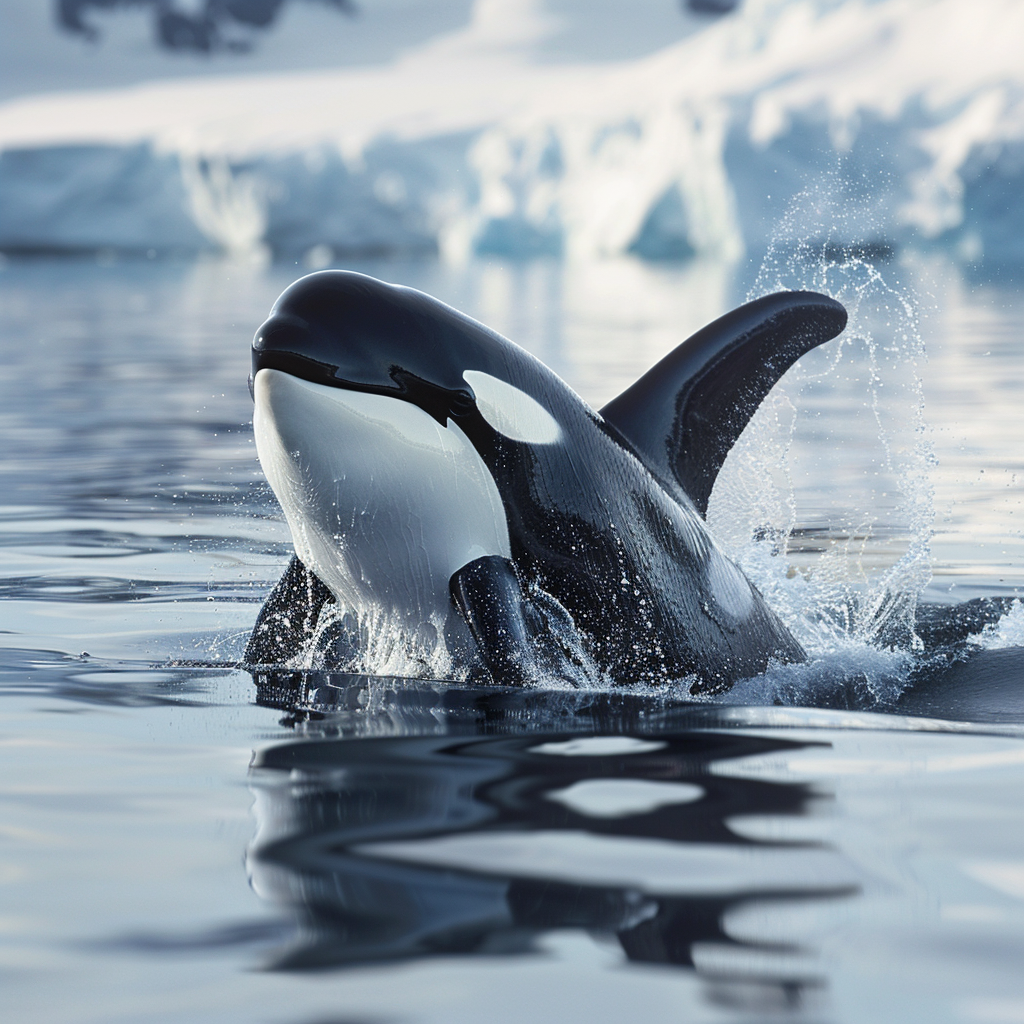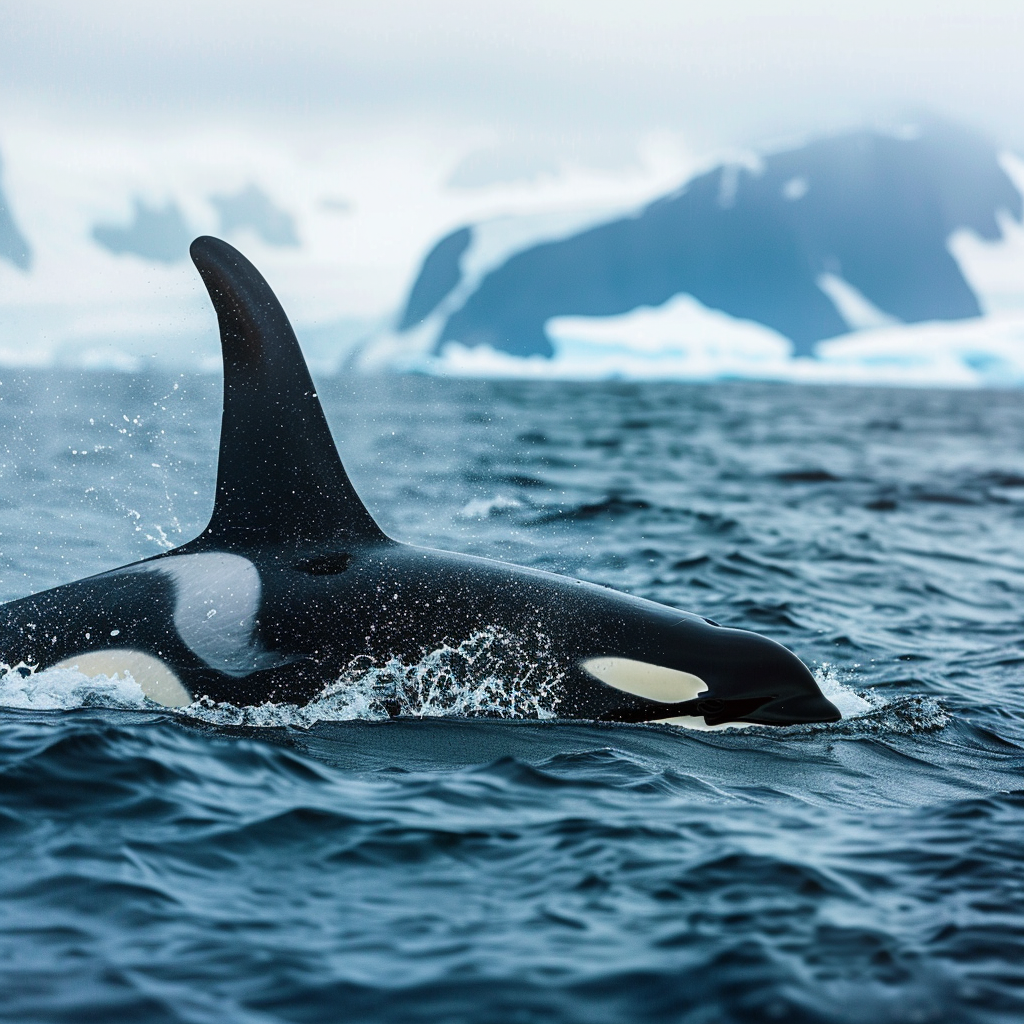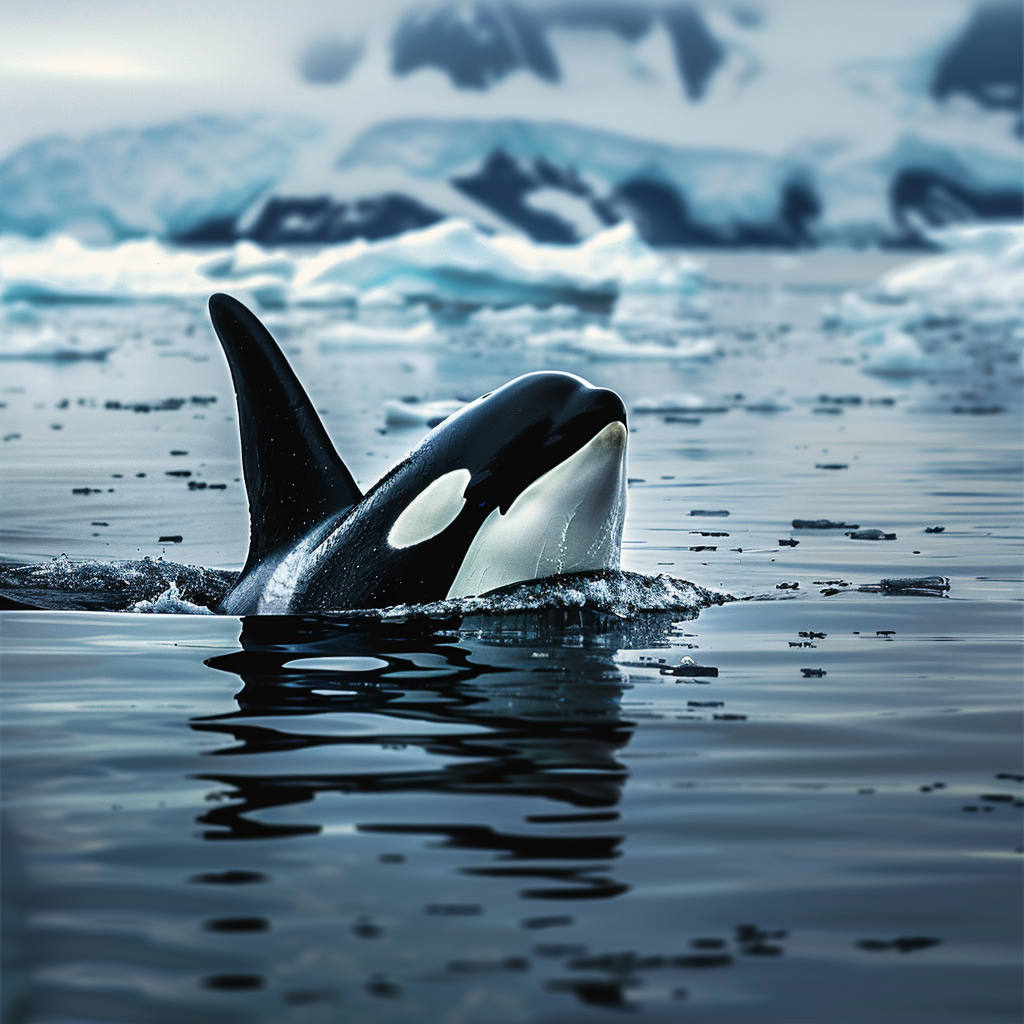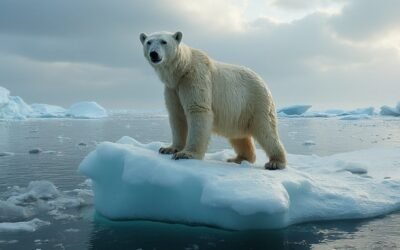Have you ever wondered about a lone killer whale taking down great white sharks? Let’s look into this fascinating story of a single killer whale challenging the usual predator-prey dynamics in the ocean.
The recent revelation of a solitary killer whale named Starboard targeting and eliminating great white sharks off the coast of South Africa has captivated marine biologists and conservationists. This unprecedented behavior showcases the intricate interactions between these apex predators, defying traditional expectations.
With its calculated and precise hunting strategy, the implications of Starboard’s actions on the local marine ecosystem and the broader ecological balance remain to be fully comprehended.
The Unlikely Predator: Killer Whales

The Solitary Hunter: Killer Whales
Unveiling the Apex Predator: Great White Sharks
In the depths off the coast of South Africa, a remarkable shift in predator-prey dynamics has been observed. Solitary killer whales, like Port and Starboard, weighing a staggering 22,000 pounds, have emerged as formidable predators targeting the apex predators of the ocean, great white sharks that can weigh up to 5,000 pounds. These solitary orcas showcase specialized hunting behaviors, exhibiting a unique preference for the nutrient-rich livers of great white sharks.
The Unconventional Approach: Solo Predators
Unlike their typical group hunting behaviors, the solitary killer whales venture on solo hunting expeditions. This unconventional approach highlights the adaptability and versatility of these marine mammals, challenging traditional beliefs about orcas’ hunting strategies. The prowess displayed by these solitary hunters underscores their remarkable capabilities in targeting and subduing great white sharks.
Impact on the Underwater Ecosystem
The interactions between solitary killer whales and great white sharks have significant implications for the local marine ecosystem. The shift in predator-prey relationships sheds new light on the intricate web of interactions that shape the underwater world. As solitary killer whales continue to target and consume great white sharks, the balance of power among these apex predators undergoes a complex transformation, impacting the dynamics of the South African coastal waters.
A New Era of Predation
The surprising dominance of solitary killer whales in the hunt for great white sharks signifies a profound shift in the predator-prey balance. This evolution in hunting behavior not only showcases the adaptability of orcas but also highlights the ever-changing nature of marine ecosystems. As these solitary hunters continue to thrive in their unconventional predation tactics, they paint a vivid picture of the evolving dynamics in the waters off the South African coast.
Clash of Titans: Orca Vs Great White
The Predatory Saga Unfolds: Orca vs. Great White
1. Orca’s Lone Pursuit:
In the waters off South Africa, a pair of solitary orca, known as Port and Starboard, have been on a relentless mission since 2017. These lone predators has set its sights on the mighty great white sharks near Seal Island, showcasing a fierce determination in its hunting pursuits.
2. Unconventional Orca Tactics:
Contrary to their usual cooperative nature, Starboard, the daring orca, has demonstrated a remarkable display of efficiency in hunting. With unconventional tactics that challenge the traditional strategies of orca predation, this apex predator has kept marine biologists on their toes.
3. Port’s Watchful Presence:
During a recent encounter where a juvenile white shark fell victim to Starboard’s prowess, Port, the companion orca, stood by as a silent observer. While not actively engaging in the hunt, Port’s presence adds a mysterious layer to the orca duo’s dynamic and calculated approach to hunting.
4. Coastal Domination:
The consistent targeting of great white sharks along the South African coastline by these formidable orcas underscores their adaptability and predatory dominance. Their strategic presence in these waters paints a picture of relentless pursuit and calculated predation, shaping the local marine ecosystem in profound ways.
5. Impact on Marine Ecology:
The orca duo’s reign as apex predators raises significant questions about the implications of their hunting behaviors on the local great white shark population and the broader marine ecology. As these titans clash in the depths of the ocean, the intricate balance of predator-prey dynamics comes to light, captivating the attention of enthusiasts and researchers alike.
Tactics of the Ocean’s Apex Predator

The Unique Hunting Style of Starboard
Solitary Predator
Starboard, the solitary killer whale, stands out for its distinct hunting style, unlike the typical cooperative behavior seen in orcas. This solitary approach showcases Starboard’s individual prowess as an apex predator in targeting great white sharks off the South African coastline.
Adaptive Prey Selection
Starboard’s hunting tactics demonstrate a remarkable adaptability in prey selection. By successfully targeting juvenile great white sharks, Starboard showcases its ability to adapt and thrive in coastal ecosystems, emphasizing its position as a top predator along the South African coastline.
Strategic Efficiency in Coastal Ecology
Rapid Predation
Starboard’s efficiency in hunting great white sharks is remarkable. The killer whale’s ability to swiftly incapacitate and consume even large juvenile great white sharks within minutes highlights its exceptional hunting skills and strategic approach to predation.
Impact on Local Ecosystem
Insights From the Marine Battle
Insights Into Apex Predator Dynamics:
- Solo Predation Tactics: Starboard’s unique approach to solitary hunting challenges the traditional view of cooperative hunting behaviors among killer whales, showcasing its independence and prowess in the marine battleground.
- Leveraging Nutrient-Rich Prey: The strategic targeting of the nutrient-rich livers of great white sharks by killer whales like Starboard highlights the significance of high-energy food sources in sustaining apex predators in the oceanic food chain.
- Ecological Ramifications: The relentless pursuit of great white sharks by killer whales like Starboard raises concerns about the potential impact on the local white shark population and the delicate balance of the marine ecosystem, emphasizing the interconnectedness of predator-prey relationships.
- Innovative Predatory Strategies: Observing Starboard’s tactics in taking down juvenile white sharks unveils the diverse and innovative predatory techniques employed by apex predators in the ocean, shedding light on the dynamic nature of marine battles.
- Adaptive Behavior: The ongoing marine battle between Starboard and white sharks underscores the adaptability of killer whales in response to evolving prey dynamics, showcasing their ability to adjust and thrive as apex predators in the ever-changing marine environment.
Implications for Underwater Ecosystems

Implications of Apex Predator Interactions in Marine Ecosystems
The evolving predatory dynamics between killer whales and great white sharks are reshaping the intricate balance of underwater ecosystems. These interactions are prompting a reevaluation of established marine ecological systems and their functioning.
Disruption of Marine Food Chains
The selective feeding behavior of killer whales, particularly on great white shark livers, is causing disruptions in the marine food chain. By impacting the availability of resources for other predators, the presence of killer whales can have cascading effects on the ecosystem.
Alteration in Predator Behavior
Observations suggesting that great white sharks are avoiding certain areas due to the presence of killer whales underline the potential alterations in ecosystem dynamics caused by these apex predators. The avoidance behavior of sharks indicates a significant shift in their movement patterns and habitat use.
Impact on Local White Shark Population
Researchers have noted a significant impact of killer whales on the local white shark population over the past two decades. This impact raises concerns about the potential repercussions on the hierarchy and functioning of the marine ecosystem as a whole.
Shifts in Ecosystem Structure
Changes in great white shark behavior to evade killer whales may lead to further shifts in the ecosystem’s structure and functioning. The complex interplay between predator-prey relationships and avoidance behaviors in marine environments highlights the delicate balance within underwater ecosystems.
Are Killer Whales Known to Prey on Other Whale Species Like the Bowhead Whale?
Killer whales, or orcas, are apex predators in the ocean and are known to prey on various whale species, including the bowhead whale. These coordinated attacks involve pod members working together. Among bowhead whale facts, their thick blubber offers some protection, but younger or weaker individuals may still fall victim to orca predation.
Does the Decline in Predator Populations, Like Killer Whales, Affect Endangered Species in the Arctic Tundra Region?
The decline in predator populations, like killer whales, can disrupt the delicate balance of ecosystems, indirectly impacting endangered animals in arctic regions. Predators help control prey populations, and their absence may lead to overpopulation of certain species, putting additional pressures on already vulnerable species in the Arctic Tundra.
Conclusion
In conclusion, the remarkable behavior of the lone killer whale, Port or Starboard, in specifically targeting and eliminating great white sharks along the South African coastline showcases the exceptional hunting skills of orcas.
This predator-prey interaction not only provides valuable insights into the intricate dynamics of marine ecosystems but also emphasizes the significant role that killer whales play in shaping local shark populations.
The unique observations from this unprecedented event underscore the critical importance of understanding and conserving apex predators to maintain the delicate balance of marine ecosystems.


